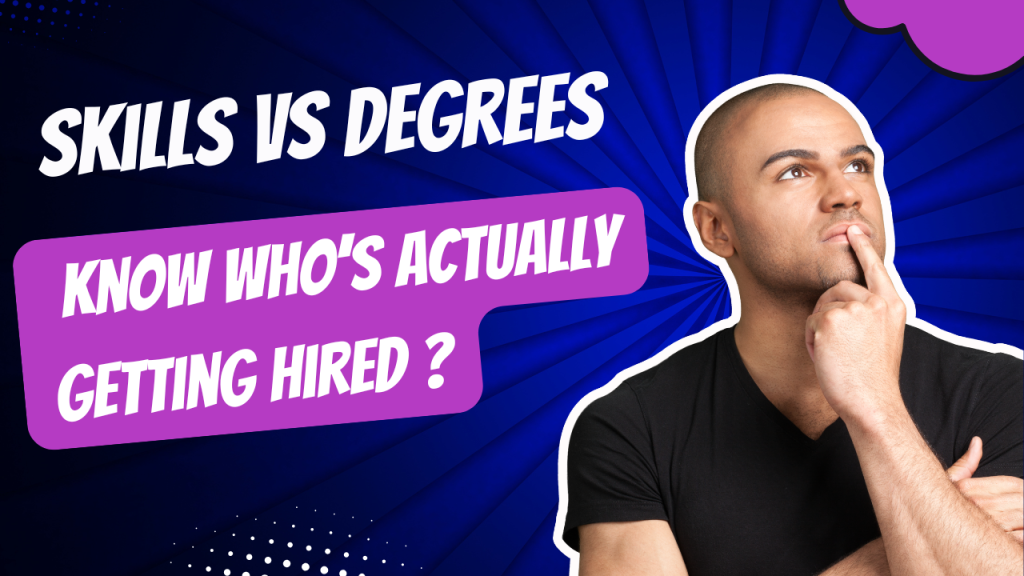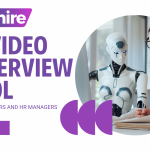Let’s face it: the job market isn’t what it used to be. Gone are the days when a college degree was your golden ticket to a dream job. In today’s tech-driven world, employers are tearing down traditional hiring barriers and putting skills front and centre.
Welcome to the age of skills-based hiring, a hiring approach that prioritizes what you can do over where you went to school or university.
Degrees Are No Longer the Default
For decades, a four-year degree was seen as the bare minimum to get your foot in the door. Employers leaned heavily on college credentials to assess a candidate’s potential. But let’s be honest:
- Does a degree always reflect real-world capability?
- Can it measure adaptability, creativity, or critical thinking?
Not necessarily.
According to a 2023 report by the Burning Glass Institute, more than 46% of middle-skill and 31% of high-skill job postings had degree requirements removed over the past five years. That’s a massive shift.
Companies like IBM, Google, Apple, and Tesla no longer require degrees for many roles. Instead, they’re now actively doing skills-based hiring, they are looking for hands-on skills, certifications, portfolios, and problem-solving abilities.
Why? Because employers have realised that:
- Competency > Credentials
- Practical knowledge> Theoretical knowledge
What Is Skills-Based Hiring?
Skills-based hiring means evaluating candidates based on their abilities, not academic backgrounds. This approach uses assessments, real-world tasks, and demonstrable skills as the main criteria for selection.
It levels the playing field, allowing candidates from diverse backgrounds to shine.
Whether you learned coding from a bootcamp, picked up digital marketing through YouTube tutorials, or developed communication skills from leading a community group, it all counts.
Potential Reasons Behind the Big Shift
1. Workforce Evolution & Rapid Tech Advancement
Technology evolves faster than university curriculums. By the time a student graduates, half the tools they studied might already be outdated.
Companies are looking for agile learners and self-starters who can adapt and upskill quickly.
2. The Talent Gap is Real
A 2024 McKinsey survey revealed that 87% of employers say they’re facing skill gaps, especially in areas like data analytics, AI, cybersecurity, and digital marketing.
The traditional degree pipeline just isn’t supplying talent fast enough.
3. Inclusion & Diversity
Relying on degrees often excludes talented individuals from underrepresented communities who couldn’t afford college. Skills-based hiring democratizes opportunity.
According to Opportunity@Work, there are more than 70 million workers in the U.S. who are STARs (Skilled Through Alternative Routes) who could qualify for higher-wage jobs if degree requirements were removed.
4. Cost & ROI of College Education
With student debt in the U.S. surpassing $1.7 trillion, many young professionals are questioning the return on investment of a traditional college degree.
Employers are responding by reevaluating how they define “qualified.”
Top Skills That Matter in 2025 and Beyond
Whether you’re applying for a startup or a Fortune 500 company, here are the skill sets that are catching recruiters’ eyes:
Technical Skills Required in 2025
- Data Analysis & Visualization
- Programming (Python, JavaScript, SQL)
- Cloud Computing (AWS, Azure)
- Cybersecurity
- UI/UX Design
Soft Skills Required in 2025
- Marketing and Communication
- Adaptability
- Critical Thinking
- Emotional Intelligence
- Problem-Solving
A LinkedIn study found that 92% of talent professionals say soft skills are equally or more important than hard skills, and yet they’re the toughest to assess via resumes.
How Companies Are Hiring Today
1. Through Project-Based Assessments
2. By Evaluating Skill Tests and Certifications sometimes
3. Portfolio-Driven Hiring
4. Utilising AI-Powered Screening Tools
Real-World Examples of Skills Over Degrees
- IBM’s New Collar Initiative: Opened up thousands of roles to non-degree holders by focusing on skills and on-the-job training.
- Google Career Certificates: Offers job-ready training in IT, UX Design, Data Analytics, and more. No degree required.
- Tesla & Apple: Publicly declared that many roles don’t require college degrees, as long as applicants can demonstrate skill mastery.
The Future of Hiring Is Human-Centred
In the modern job landscape, your learning mindset and practical abilities carry more weight than your alma mater.
Skills-based Hiring is becoming more:
- Flexible
- Accessible
- Inclusive
This is great news for lifelong learners, self-starters, and career switchers.
Your next big opportunity might not hinge on a fancy degree, but on the value you can bring to the table right now.
So, What Should You Focus On to Survive and Stand Out?
- Take courses, attend workshops, and read blogs.
- Showcase real-world work.
- Short-term certifications can offer long-term gains.
- Communication and collaboration can set you apart.
- Be ready to demonstrate skills, not just talk about them.
How Xenhire Is Empowering the Skills-based Hiring
At Xenhire, we believe the future belongs to the skilled, not just the schooled. That’s why we’re empowering students and professionals with tools to boost their technical and soft skills for the real world.
Whether you’re preparing for your first job or aiming to climb the corporate ladder, Xenhire’s AI-powered mock interviews, career readiness platform, and resume optimisation tool are designed to help you stand out, with or without a degree.
Because your skills tell your story better than your certificates ever could.
Visit: www.xenhire.com to book a demo today!
Related Helpful Article
Read and Know: How to Overcome Interview Anxiety?


